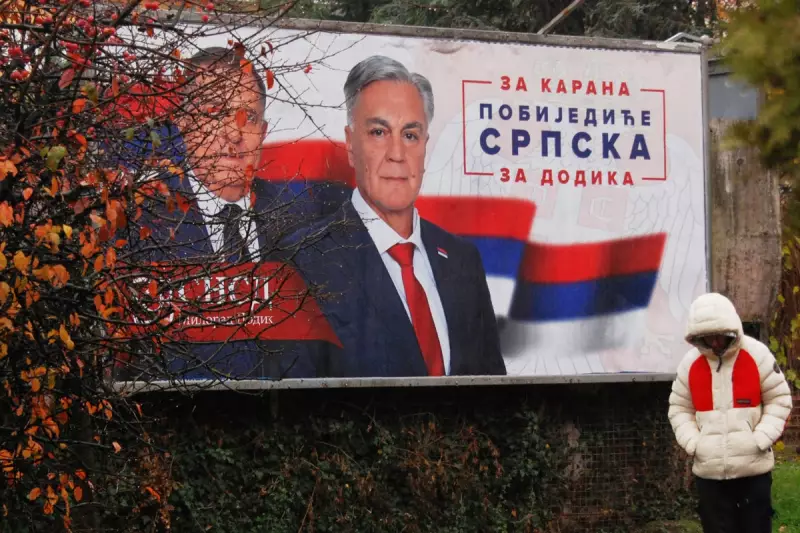
A close political ally of Bosnian Serb separatist leader Milorad Dodik is leading the presidential race in the Serb-run half of Bosnia, according to near-complete preliminary results. The outcome, however, is being fiercely contested by opposition figures who are alleging widespread electoral fraud.
Election Results and Fraud Allegations
The snap presidential election was held in Republika Srpska on Sunday, 24th November 2025. It was called after Milorad Dodik was removed from the presidential office in August. A Bosnian court had convicted him of disobeying the orders of the international High Representative, sentencing him to a year in prison and banning him from public office for six years.
With approximately 99% of the votes counted, the results show a tight contest. Sinisa Karan, an ally of Dodik, secured around 50% of the ballots. His main opponent, Branko Blanusa, trailed closely with about 48% of the vote.
Blanusa and other opposition leaders have not accepted these figures, claiming there was "massive vote rigging" in three towns near the border with Serbia. They specifically allege that irregularities included the illegal "importing of voters" from neighbouring Serbia, who they suspect cast their ballots for the pro-Dodik candidate.
"These elections are not over yet," Blanusa stated. "They will be over when the election process is repeated in the three towns where, thanks to election manipulations, the results do not reflect the will of the people."
Dodik's Political Comeback and Separatist Stance
Despite his legal troubles, Dodik remains a dominant political force. He paid a fine to avoid a jail sentence and stepped aside as president, but he retains leadership of his governing Party of Independent Social Democrats.
On Sunday, Dodik declared victory for his ally Karan and used the opportunity to criticise the proceedings that led to his own ousting. "They wanted to bring down Dodik in an unfair process and now they got two Dodiks and they will watch us every day," he said. Karan echoed this sentiment, vowing that "we will continue where we left off."
Dodik has long advocated for the eventual separation of the Serb-controlled entity, Republika Srpska, from Bosnia, which he frequently describes as unviable. His separatist policies have previously triggered sanctions from the United States and Britain. The US lifted these sanctions last month after Dodik agreed to step down from the presidency.
Background of Bosnia's Complex Political Structure
The political landscape of Bosnia is uniquely complex, a direct result of the 1992-95 ethnic war that killed over 100,000 people. The current structure was established 30 years ago by a US-brokered peace agreement.
The country is divided into two distinct entities: the Serb-run Republika Srpska and a federation jointly administered by Bosniaks (mainly Muslims) and Croats. These two entities are bound together by a central, but often fragile, administration.
Dodik continues to clash with the international envoy overseeing the peace, Christian Schmidt, and has declared Schmidt's decisions illegal within Republika Srpska. Four other candidates also participated in Sunday's presidential race, though they garnered significantly less support.





